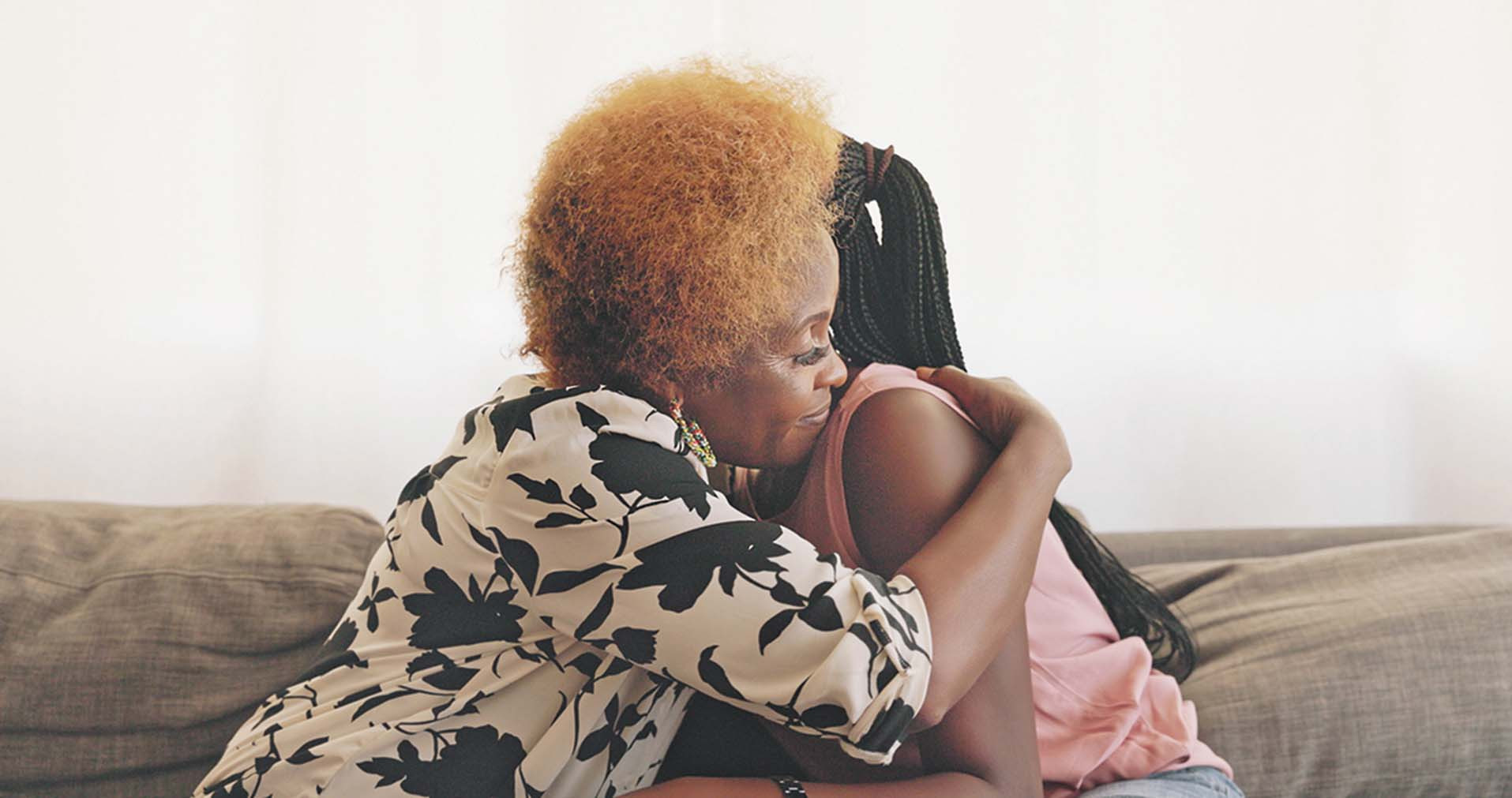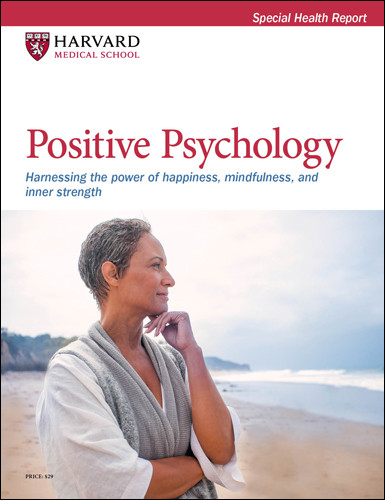Not just good for the soul
Science is pinpointing how forgiveness also benefits our brains and bodies.
- Reviewed by Toni Golen, MD, Editor in Chief, Harvard Women's Health Watch; Editorial Advisory Board Member, Harvard Health Publishing; Contributor

When Oscar Wilde exhorted us (probably tongue-in-cheek) to "always forgive your enemies, because nothing annoys them so much," the Irish poet and playwright was focused on how others would respond.
But the real benefits of forgiveness might be better viewed with a more selfish eye. Whether we're bitter after an argument with a partner, a misunderstanding with a family member, or a spat with a friend, holding on to anger and resentment can do more than tax our souls — it can harm our health, Harvard experts say. And this is true even when it comes to weightier offenders, such as a sabotaging colleague or an unfaithful spouse.
A new Harvard-led study builds on earlier research that teases out the effects of this most human of actions, suggesting forgiveness boosts our mental well-being by reducing anxiety and depression. The results add to other recent evidence that it can also ease stress, improve sleep, and lower blood pressure and heart rate.
"Forgiveness acknowledges the wrong and helps you be free from it," says Tyler VanderWeele, co-author of the new Harvard study and co-director of the Initiative on Health, Spirituality, and Religion at the Harvard T.H. Chan School of Public Health. "It frees you from the offender as well. When appropriate, forgiveness can lead to restored relationships, bringing happiness, satisfaction, and social support — which evidence also links to better health."
Simple and complicated
For such a challenging undertaking, the definition of forgiveness is surprisingly basic. "It's simply replacing ill will toward an offender with goodwill," says VanderWeele, also director of Harvard's Human Flourishing Program.
But what forgiveness doesn't mean is a bit more nuanced: it doesn't condone the harm you've suffered — and it definitely doesn't mean you're expected to forget it, says Craig Malkin, a lecturer in psychology at Harvard Medical School.
"It's not excusing, explaining, or exonerating," he says. "Saying you forgive is easy, but doesn't change the feelings inside. We can be sad for what we experienced and angry about what happened. But above all, a state of forgiveness is accepting that what happened is over."
Unquestionably, the bigger the offense, the tougher it is to forgive. Emotional or physical abuse — or violence — are far harder to move past than smaller insults. It's a tall order for survivors of abusive relationships, for example, to be asked to forgive the person who hurt them, Malkin says.
That's why it's important to recognize that forgiveness doesn't always include reconciling with the wrongdoer.
"One can forgive and want what's ultimately good for the other person without the relationship being restored," VanderWeele says. "Likewise, one can forgive an offender while pursuing justice. So forgiveness can be compatible with a just anger."
Mental health advantages
In VanderWeele's study, which was presented at a Harvard conference in April 2023, he and colleagues randomly assigned nearly 4,600 adults from five countries — all of whom had experienced an "interpersonal transgression" — into two groups.
The people in one group received a self-guided forgiveness workbook filled with written exercises. Individual exercises sought to teach users techniques such as recalling hurt feelings and empathizing with the offender. For example, participants were asked to describe a person who'd hurt them and their offense. Participants then needed to write the story from the perspective of an observer without vilifying the wrongdoer or underscoring how the participant felt victimized.
This type of "switching seats" to adopt the mindset of both the offended and the offender is "difficult to do, but can be quite an insightful part of the process," VanderWeele says.
Two weeks later, those participants reported fewer symptoms of depression and anxiety than their counterparts in the other group, who had not yet received workbooks.
"We thought if we were able with a simple, self-directed workbook to improve people's capacity to forgive, it would probably have effects on their mental health as well," he says. "We found the effects were pretty substantial."
What does it take to forgive yourself?Forgiving others is challenging enough. But what if you're the one who's done something wrong? "It can feel a little odd to say, 'I'm going to pardon myself,'" says Tyler VanderWeele, co-director of the Initiative on Health, Spirituality, and Religion at the Harvard T.H. Chan School of Public Health. But it's a worthwhile effort: as with forgiving others, self-forgiveness is linked with less psychological distress, including fewer symptoms of depression, according to a 2020 study VanderWeele co-authored in Frontiers in Psychology. Getting started requires recognizing that no matter how badly you've behaved, you're in a relationship with yourself — one that deserves respect and compassion. Calling self-forgiveness a "second dimension" of the concept of forgiveness, a 2022 study published in the journal Spiritual Care pointed out that any genuine effort to self‑forgive must include three components: remorse, apology, and the making of amends. Only then can you restore your self-esteem. "Genuine self-forgiveness needs to acknowledge the wrong, but in spite of the bad, you should want what's good for you," VanderWeele says. "And that may involve changing." Guilt and self-recrimination will only take you so far, says Craig Malkin, a lecturer in psychology at Harvard Medical School. But ultimately, forgiving ourselves liberates us to ask the same from others. "You can't take action in a relationship if you're in that spin cycle of beating yourself up," Malkin says. "If we're riddled with guilt or shame, those feelings shut us down. From a self-forgiving stance, we can take action, even corrective action — but we can't do that if we're stuck in that loop." |
Learning to forgive
On the flip side, being unable to forgive places a bigger burden on your body than you might realize. "We do know that when we're in that state of unforgiveness, our blood pressure rises," Malkin says. "Logically, if that doesn't resolve, over time that affects our heart health in a very basic way. It can wreak havoc."
Feeling stuck in hostility can torment us mentally, too. This conundrum is marked by vengeful fantasies and intense rumination — looping negative thoughts that Malkin describes as "a churning."
"If you're just unforgiving," he says, "you lose out on the opportunity for repair and the deeper closeness that comes from that repair."
For some people, however, the act of forgiving just seems to come more easily. People with certain temperaments and personality types are innately better at it, and evidence suggests that over all, women are more forgiving than men, VanderWeele says. That said, "it's an option open to everyone," he notes. "I don't think there's anyone who cannot forgive."
It's also a skill that can be learned, Harvard experts agree. The simplest way to approach it, Malkin says — though not with a violent or abusive person — is by sharing what hurt you. This requires a vulnerability that can be hard to summon, but is far more productive than being angry, sad, or brittle.
"Always lead with the vulnerable feeling," Malkin says. "If you just blast them and say, 'I can't believe you did that,' they're going to be on the defensive and they can't open their heart. If you withdraw, there's no opportunity for repair."
Forgiveness strategies
Looking for ways to incorporate forgiveness into your life? Malkin and VanderWeele suggest these strategies:
Process your pain. Take some time to describe what happened to you and its aftermath in writing — but not to share with your offender. The document is just for you, to process your vulnerable feelings. "Don't censor or shortcut it," Malkin says. "It's an opportunity to take a more compassionate view of what you went through. This helps move you to a different place."
Seek stories of forgiveness. The gesture is as old as time, so find examples you can draw from. "I do think reading these stories can be very inspiring, as well as challenging," VanderWeele says. "Turning to those models can be quite helpful."
Reflect on the advantages. If you're the analytical type, weighing the cost and benefits of forgiveness may prod you forward. "As the writer Malachy McCourt once said, holding a grudge is like taking poison and hoping the other person dies," VanderWeele says.
Image: © LaylaBird/Getty Images
About the Author

Maureen Salamon, Executive Editor, Harvard Women's Health Watch
About the Reviewer

Toni Golen, MD, Editor in Chief, Harvard Women's Health Watch; Editorial Advisory Board Member, Harvard Health Publishing; Contributor
Disclaimer:
As a service to our readers, Harvard Health Publishing provides access to our library of archived content. Please note the date of last review or update on all articles.
No content on this site, regardless of date, should ever be used as a substitute for direct medical advice from your doctor or other qualified clinician.
















